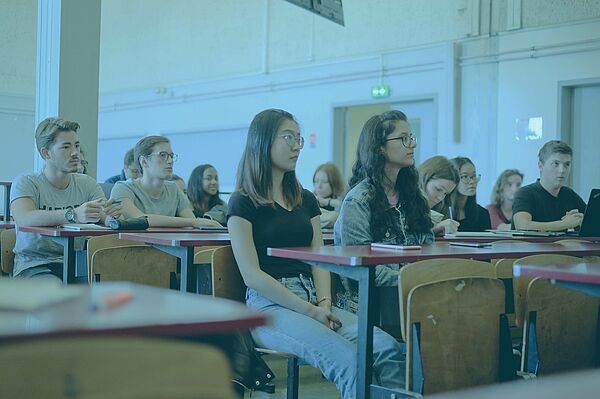Program Objectives
Students in the first year of the Master's degree in International Affairs and Development take courses in three main areas: Economics, Sustainable Development, and Peace Studies The Master's offers students an interdisciplinary education in economics, sociology, political science, finance, and law. There are required and elective courses in each area. Courses are also open to students specializing in other areas.
Program objectives:
- Acquire a solid general knowledge of contemporary international issues
- Acquire and apply quantitative and qualitative tools as well as analytical methods in the chosen field
- Gain skills in quantitative techniques such as econometrics, modeling, and forecasting
- Specialize in the field of international economics and development economics
Economics Major:
This major aims to prepare students for two types of international careers: those related to research and analysis, and more operational roles connected to the business world and to geopolitical, human, ecological, and environmental challenges within companies and international organizations.
Students have the opportunity to complement their training with the AQME (Advanced Quantitative Methods in Economics) certificate, which is part of the Research Track of the Graduate Program in Economics.
When you enroll in a Master's program, you also join Université PSL. Ranked in the top 50 universities in the world (THE and QS), PSL offers excellent graduate programs at the Master's and PhD level, which benefit from the scientific capabilities of its member institutions. The degree is prepared at Université Paris Dauphine-PSL and awarded by Université PSL.

- Types of education
- Initial training
- Language(s)
- French
- ECTS Credits
- 60 credits
- Internship
- Optional Internship
- Capacity
- 30
- Type of Diploma
- Diploma from a major institution conferring the Master's degree
- Academic Year
- 2025/2026
The Master in International Affairs and Development allows interested students to acquire the Certificate in Advanced Quantitative Methods in Economics (AQME) of the PSL Graduate Program in Economics.
The AQME certificate is based on a 2-year training (M1 International Affairs and Development, Economics Major - M2 International economic assessment or M2 International economics and development) for students who plan to pursue towards a PhD or work in research departments or institutions.

The challenges of the ecological and social transition in the Master's degree programs
Several courses and tools are offered to students in the Master’s program, regardless of their specialization
- “Ecological Transition and Social Responsibility” Certificate
- “Dauphine Durable” SPOC A common base of knowledge in the areas of ethics, social responsibility and sustainable development. It tackles the basics of CSR: control, human resources, finance, marketing, strategy, climate issues and the environmental transition.
- “Managing SDGs” SPOC A unique learning experience in which students from multiple countries work together on real-life case studies.
- Virtual University of the Environment and Sustainable Development At PSL, Dauphine is a founding member of Université Virtuelle Environnement et Développement durable (Virtual University of the Environment and Sustainable Development), which allows it to provide its students with a set of resources and MOOCs.
Contacts
Stéphanie Monjon
University Professor
Director of the 1st year of the Master's degree - International Affairs and development
Alexandra Reverchon
Teaching assistant

